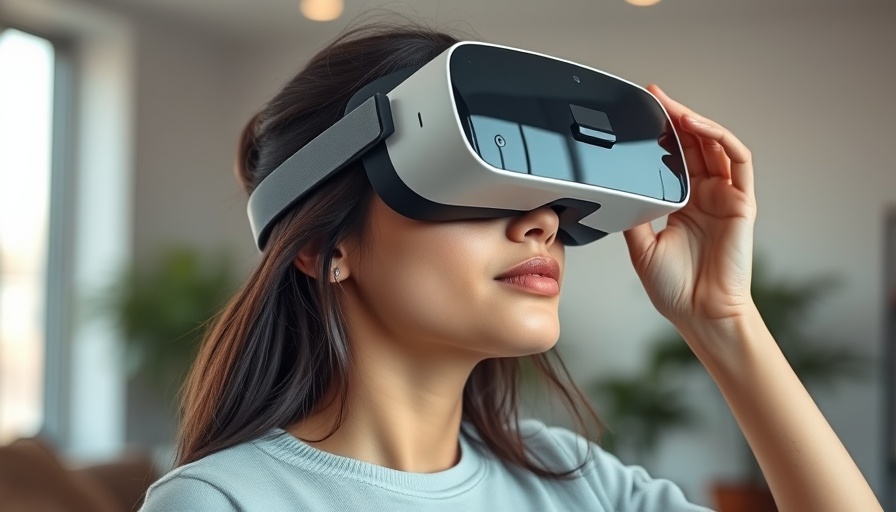
The Intersection of Virtual Reality and Dementia Detection
As the world of technology continues to evolve, virtual reality (VR) is stepping beyond the realm of entertainment and into the critical field of healthcare, particularly with respect to Alzheimer's disease. The shift toward utilizing VR for cognitive assessment marks a pivotal moment where innovation meets medical necessity. Many practitioners, including those in concierge health, are keenly aware that early detection is crucial for improving patient outcomes.
Exploring VR Technology's Role in Cognitive Assessments
Current methods for diagnosing Alzheimer's often rely on expensive and invasive biomarkers that may not be suitable for all patients. Researchers are now leveraging VR technology to create immersive environments that can assess cognitive functions in a non-invasive manner. By converting traditional 2D tasks into 3D experiences, clinicians can gain more accurate insights into a patient's cognitive abilities.
The integration of VR into clinical practice directly addresses the challenge faced by health practitioners: identifying cognitive impairment without leading patients through uncomfortable and daunting procedures. Understanding spatial memory through VR simulations enables clinicians to evaluate how well patients can navigate their surroundings, which directly correlates with the understanding of their cognitive health.
Real-world Significance of VR Assessments
The implications of using VR for diagnosing Alzheimer's are profound. According to recent studies, around 1 in 13 individuals aged 65 and older are likely to develop this debilitating disease—a number expected to rise significantly. By utilizing VR assessments, healthcare providers can catch cognitive decline earlier, allowing for lifestyle modifications and therapeutic interventions that may mitigate the symptoms or slow progression.
A Look at Current Research and Developments
At the current Cognitive Neuroscience Society meeting, experts are sharing breakthroughs in how VR can link navigation skills to biological markers of Alzheimer’s. Research led by neuroscientists like Tammy Tran indicates that understanding how patients relate to memory and navigation in a virtual context will be crucial for creating effective and empathetic diagnostic tools. This shift from reliance on traditional assessments reflects a broader trend in healthcare towards integrating technology into routine practices, something modern health practitioners must embrace.
Future Outlook: Embracing Technology for Improved Patient Care
The continued push for technological integration in healthcare could redefine the relationships between practitioners and patients. As VR becomes more prevalent in cognitive assessments, concierge health providers must remain agile and informed about these developments. Incorporating such advanced tools into practice will not only enhance diagnostic accuracy but will also improve the patient experience, allowing them to engage in their health management in innovative ways.
As patients move toward seeking more personalized health encounters, understanding the role of technology in shaping these interactions is paramount. Practitioners who leverage VR solutions effectively will be at the forefront of providing high-quality care and driving conversations about mental health management.
Conclusion: Taking Action on VR Innovations
Cognitive assessment methods utilizing VR technology represent an exciting frontier in Alzheimer's detection. The ease of use and cost-effectiveness of VR solutions make them an attractive option for modern healthcare. Health practitioners must stay informed and prepared to integrate these advancements into their approaches to patient care. Doing so not only enhances diagnostic capabilities but also promises a more positive impact on patient well-being.
For more insights on how to implement such technologies in your practice and for staying updated on the latest innovations in healthcare, stay engaged with news and resources in the field of medical technology.
 Add Row
Add Row  Add
Add 






Write A Comment